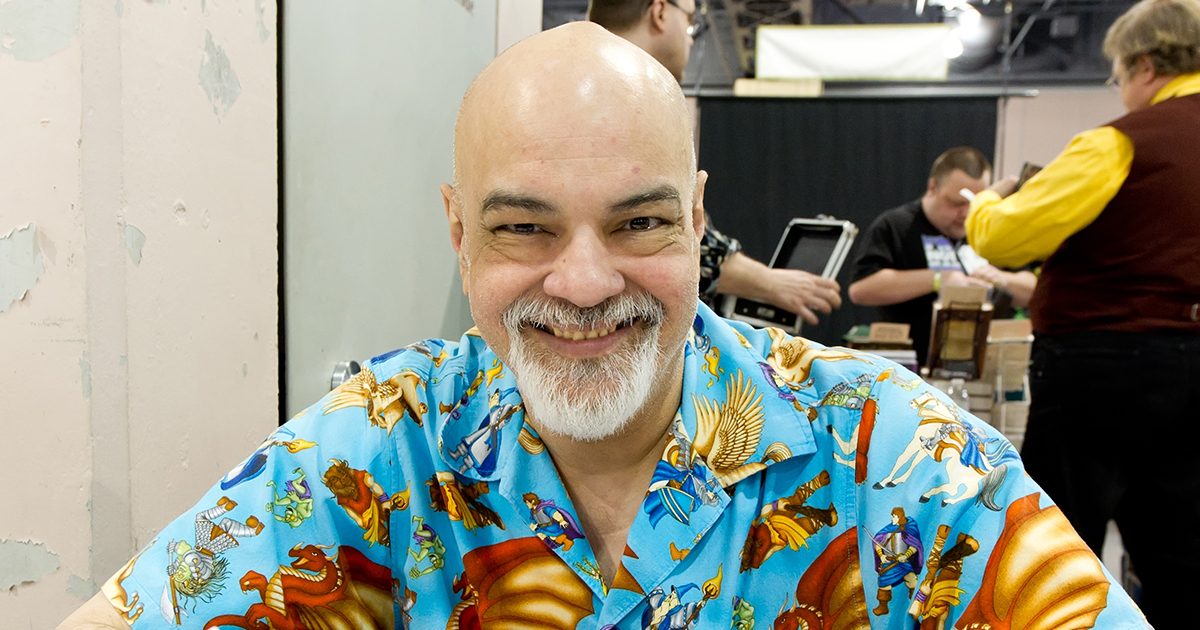Opting Out of Cancer Treatment
- Celebrated comic book artist George Perez has revealed that he's been diagnosed with pancreatic cancer, and he won't be undergoing treatment.
- Perez, 67, has been given between six months and a year to live.
- Dr. Marianna Strongin, a licensed clinical psychologist, tells SurvivorNet that the decision to opt out of cancer treatment “is a very personal one that is often done after treatment options and protocols are described and laid out to (the patient.)” So it’s important to remember not to judge or take a person’s decision too personally.
"I have been given the option of chemotherapy and/or radiation therapy, but after weighing all the variables and assessing just how much of my remaining days would be eaten up by doctor visits, treatments, hospital stays and dealing with the often stressful and frustrating bureaucracy of the medical system, I've opted to just let nature take its course and I will enjoy whatever time I have left as fully as possible with my family, friends, and fans," Perez wrote on Facebook in a post announcing the heartbreaking news.
Read More"Maybe it's because it will likely be my last. Or maybe because I am enveloped in the loving arms of so many who love me as much as I love them. It's quite uplifting to be told that you've led a good life, that you've brought joy to so many lives and that you'll be leaving this world a better place because you were part of it."
George Perez is best known for his work on the DC Comics series Crisis on Infinite Earths and Wonder Woman, as well as the Marvel series The Avengers and The Infinity Gauntlet.
George Perez’s Decision Not to Treating His Cancer is a Personal One
When a cancer patient makes the decision not to treat their cancer, as Perez has done, it’s not uncommon for other people in that person’s life to have opinions about the decision. It’s understandable as that person would be losing a loved one.
However, Dr. Marianna Strongin, a licensed clinical psychologist and founder of Strong In Therapy Psychology, tells SurvivorNet that this decision to opt out of cancer treatment “is a very personal one that is often done after treatment options and protocols are described and laid out to (the patient.)”
She adds that although it’s a personal decision, “it’s also one that impacts the primary patient’s entire family and is therefore often discussed at length with both family and physicians.” Hence why family members may have strong opinions about their loved one opting to not treat their cancer.
“The decision that George Perez made is one that is very personal yet impacts his entire family. Regardless of how many people it impacts, we must remember it is his personal choice to steer the way in which he lives his life,” Dr. Strongin says.
Dr. Strongin adds, “When people hear about others making this kind of decision they often personalize it and reflect on how they would proceed or rather their willingness to ‘fight.’ However, this is not a decision to personalize unless you have been dealt the exact same set of cards within the same life. Therefore, this preference is as personal and emotional as it gets and anyone who is making it is already unbelievably brave.”
“Rather than personalize or judge it from our lens, let’s become curious about the feelings and experiences that make up this decision.”
Dr. Anirban Maitra talks about the challenges to screening for pancreatic cancer.
Learn more about SurvivorNet's rigorous medical review process.


